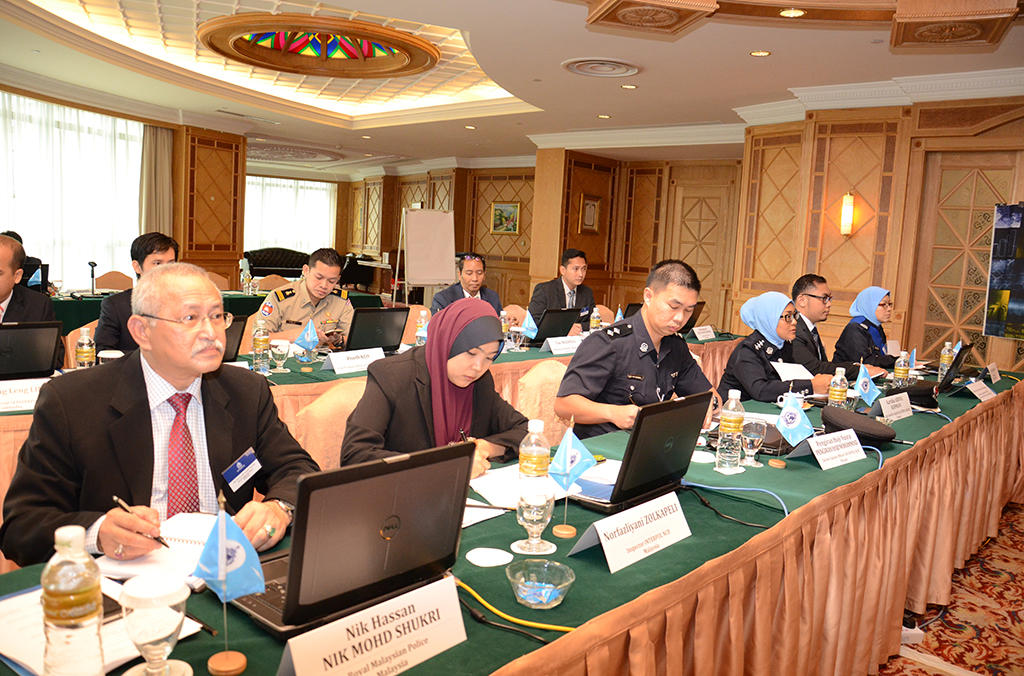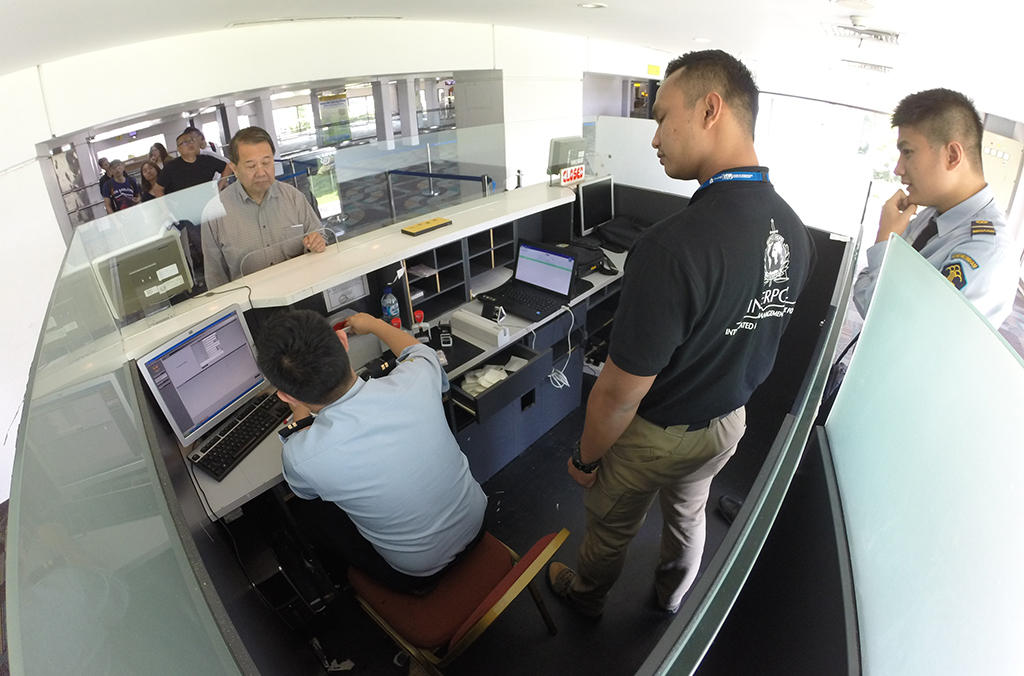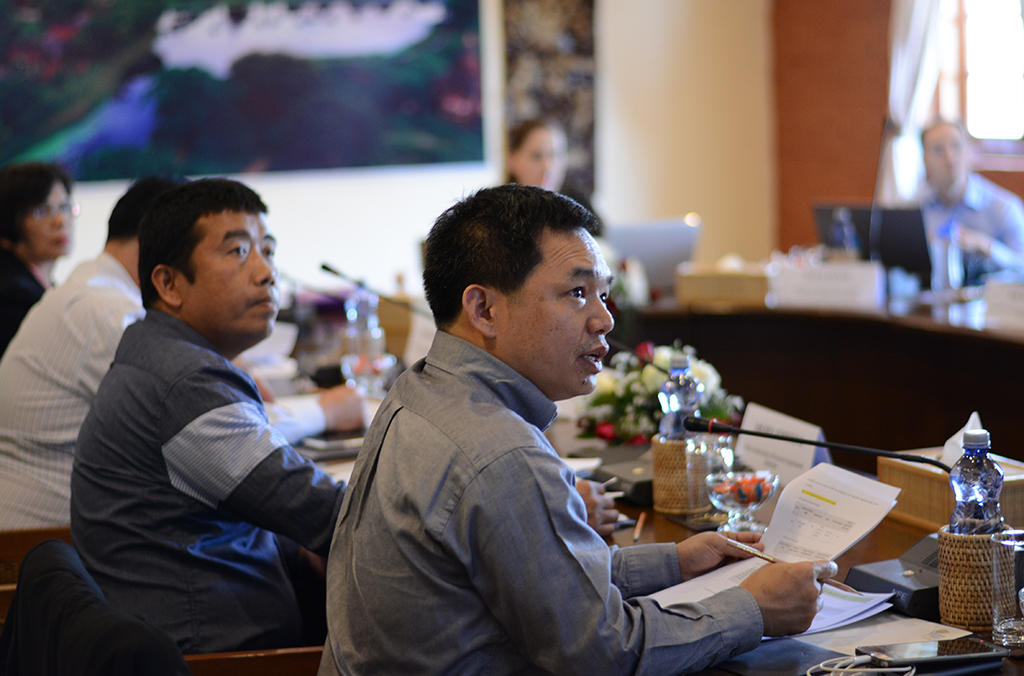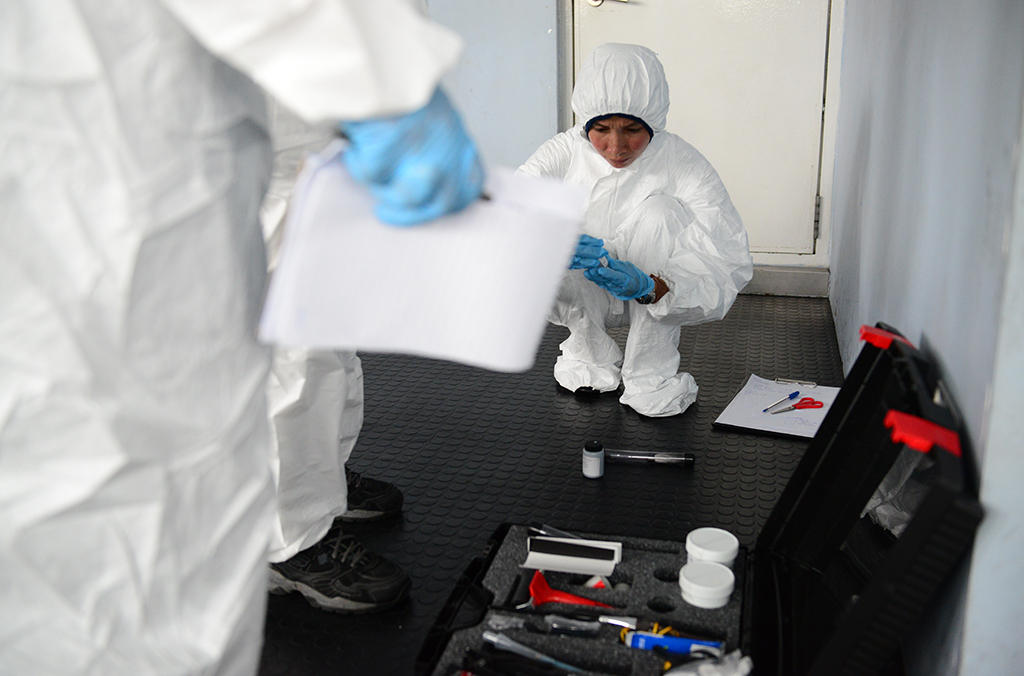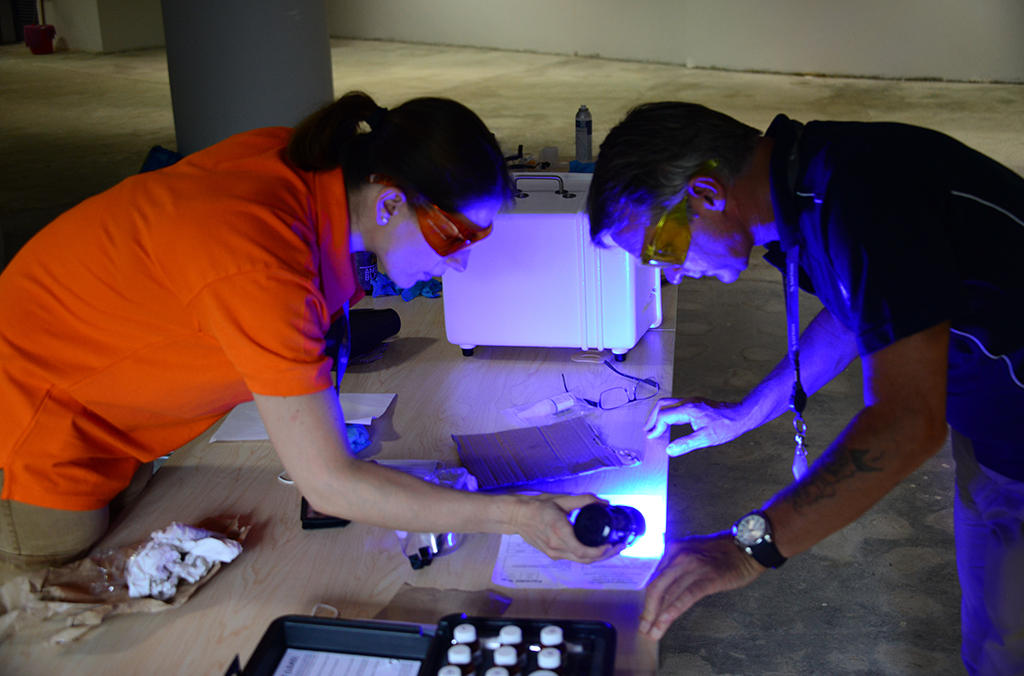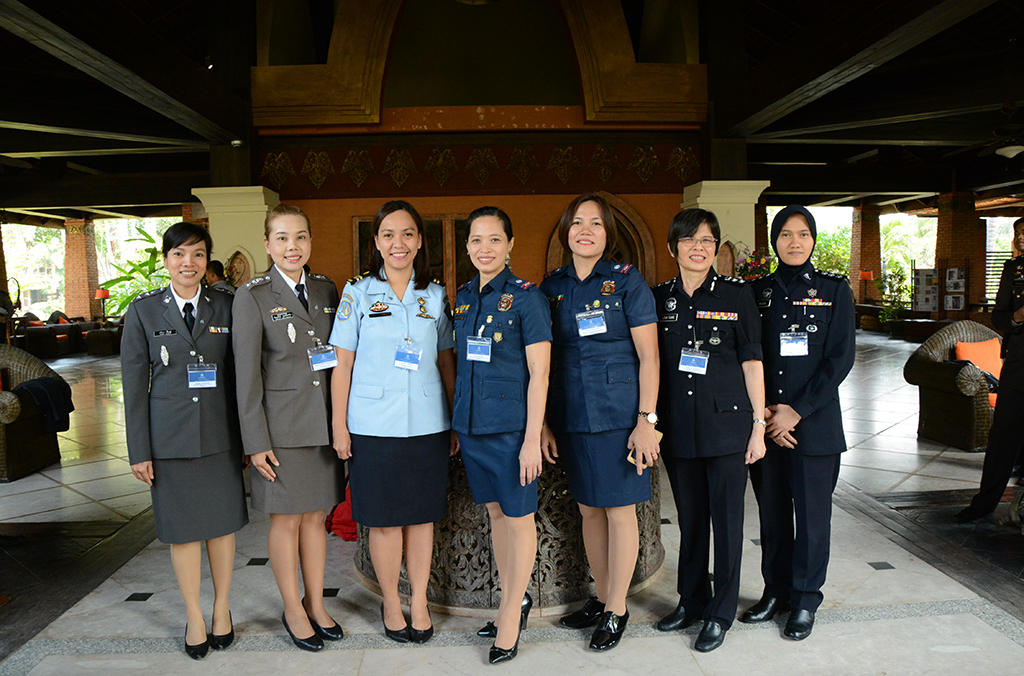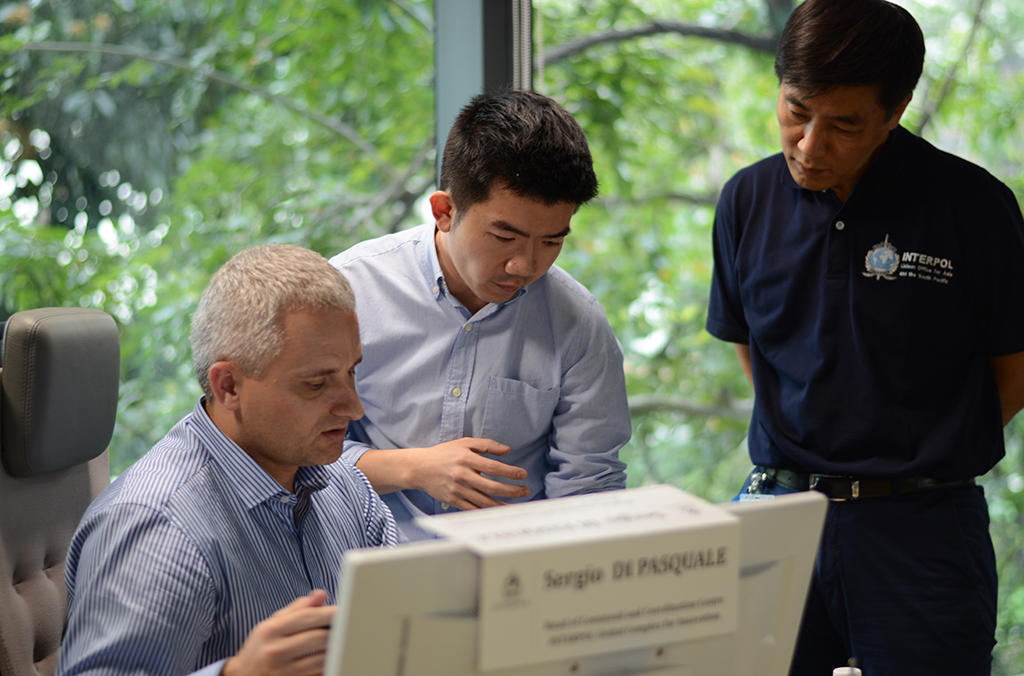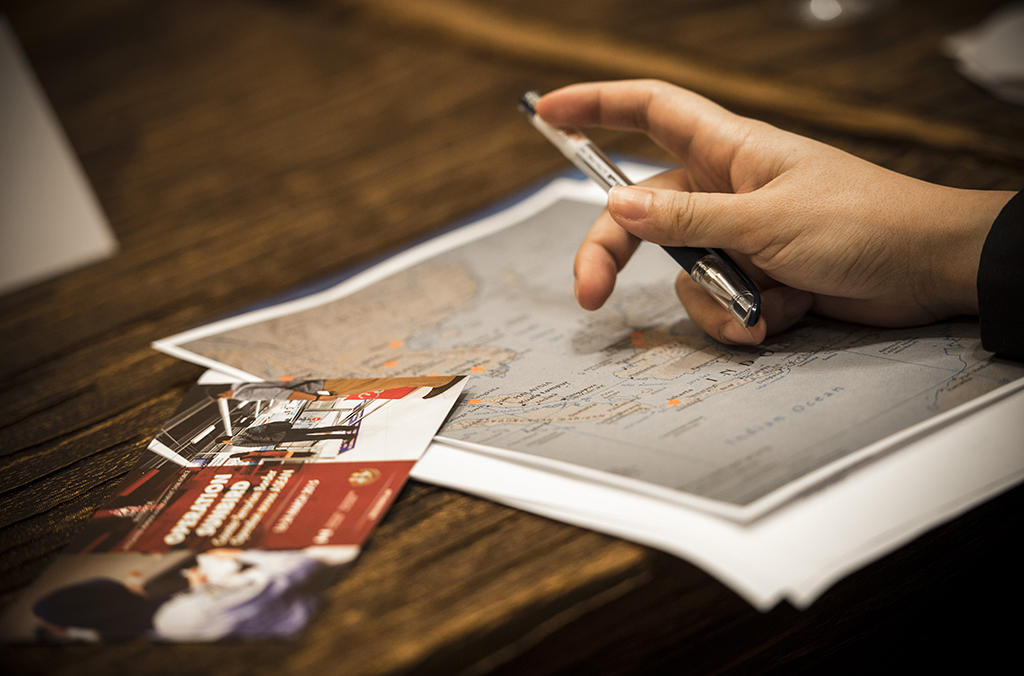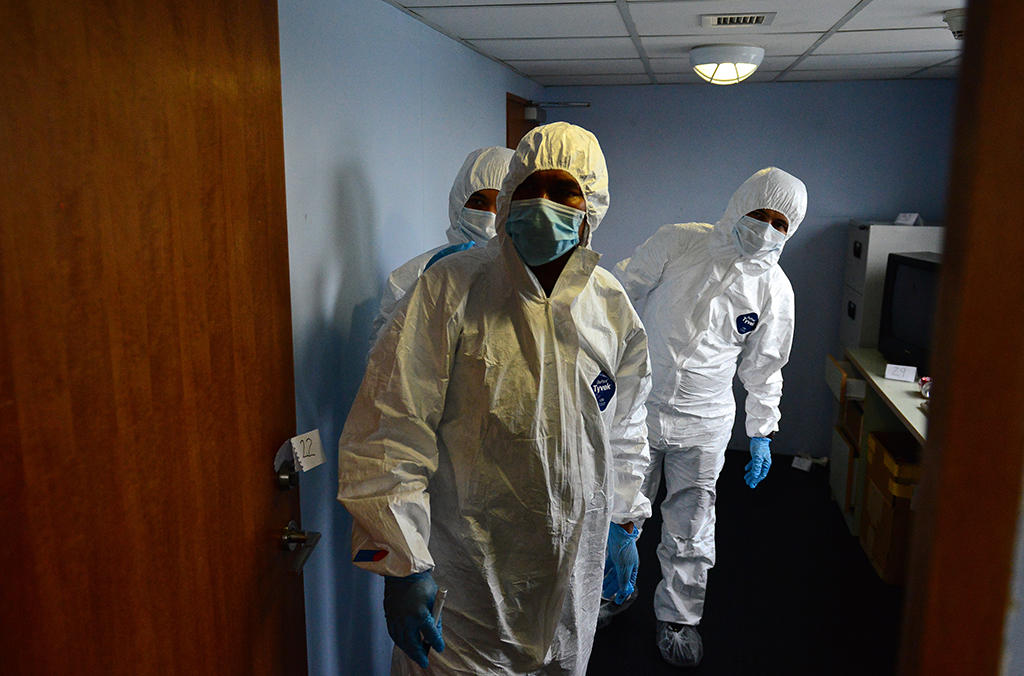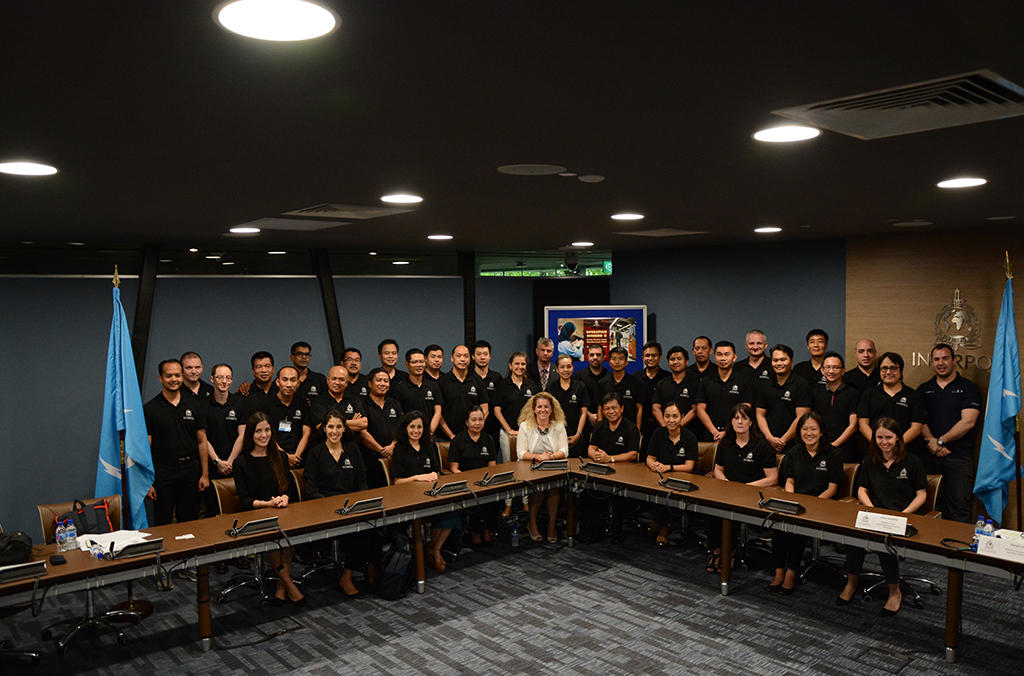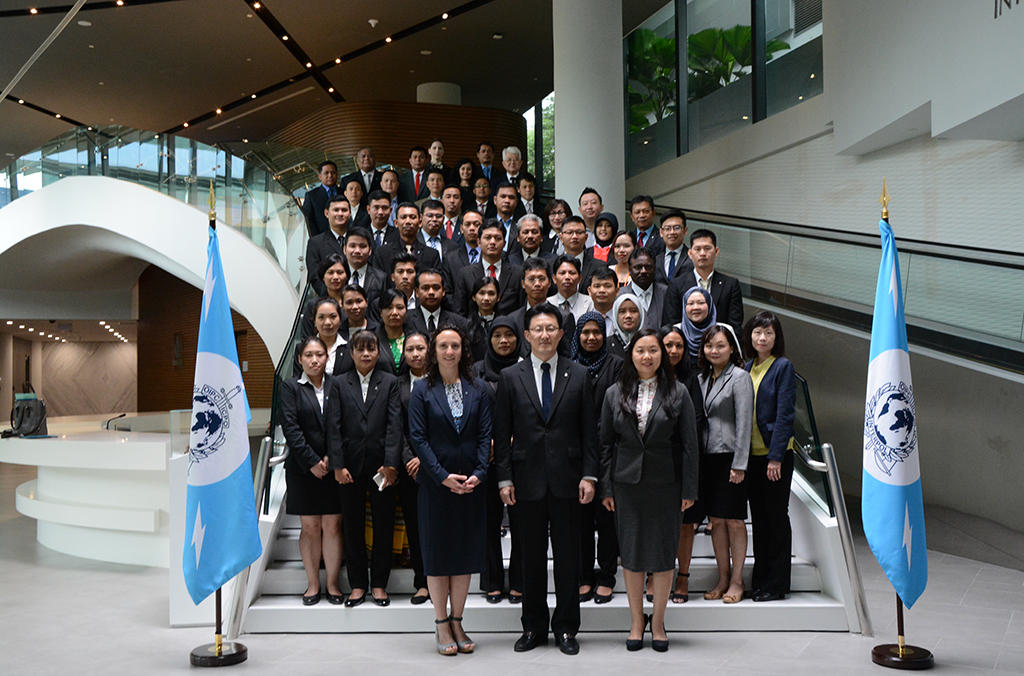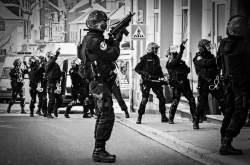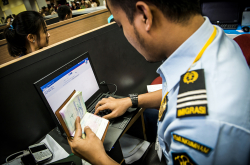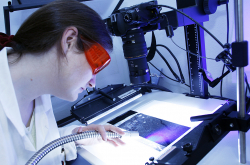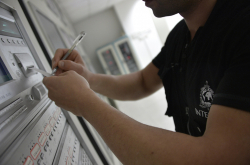Specialized training on conducting collaborative counter-terrorism investigations was the focus of the Capacity Building Programme on Improving Counter-Terrorism and International Collaboration in ASEAN nations which concluded in 2017.
Under the CT-ASEAN programme, jointly funded by INTERPOL and the Government of Canada, some 10 workshops and 14 specialized training courses were held, training 550 law enforcement officers across the 10 countries in the Association of Southeast Asian Nations. Key actors included law enforcement, border and immigration agencies, forensic experts, investigators and national decision-makers.
Activities focused on three key areas: forensic techniques, investigative skills and INTERPOL’s data sharing mechanisms including the I-link platform and Rules on the Processing of Data.
The training was complemented by two on-the-ground border security operations.
Operation Sunbird
One of the most important activities of the CT-ASEAN programme were the border security actions, called ‘Operation Sunbird’, conducted in 2015 and 2016, which saw passengers and travel documents were screened at airports and border points.
During the two operations, more than 5 million searches were conducted against INTERPOL’s databases, resulting in 87 positive matches including the identification and arrest of 13 internationally wanted fugitives and the publication of nine INTERPOL notices.
Due to the enhanced border presence during the Sunbird II operation in 2016, five separate drug seizures were made at the seaport in Batam, Indonesia, leading to the arrest of five individuals.
In line with the counter-terrorism focus of the programme, the operations increased the exchange of intelligence between member countries in the region and beyond. One specific outcome was the arrest and deportation from South Korea of two Indonesian nationals with suspected terrorist ties.
Women in policing
Under the umbrella of the programme, we organized our first roundtable on the role of women in policing to highlight the important role women play in the law enforcement field and discuss challenges faced by women in the traditionally male profession.
The meeting gathered 25 high-level female representatives from all 10 ASEAN countries as well as the International Association of Police Women, UNPOL, UN Women, the Queensland Police Service and the Indian and Canadian governments.
Discussions focused on training and mentoring for women at the operational, management and leadership levels. It also tackled broader policies to encourage the hiring and retention of women by police forces, as well as their progression to strategic management positions.
Criminal databases
Ensuring that officers across the region incorporate the new skills into their daily police work was a key outcome of the programme. This was demonstrated, for example, by a significant increase in the number of searches conducted against our criminal databases; from 4 million searches in 2014 to 68 million searches in 2016.
An important objective of the programme was to ensure ASEAN countries consistently contribute information to our databases, particularly the SLTD database (travel and identity documents). We worked with the participating countries to develop national standard operating procedures (SOPs) for using the SLTD database.
Through this comprehensive capacity building programme, INTERPOL has forged strong relationships with its member countries in the ASEAN region, providing vital training to ensure their law enforcement agencies are fully equipped to tackle a broad range of security threats.
Forensic assessments
As part of the programme, efforts were made to increase both the quantity and quality of biometric data gathered and shared in the region, and to improve and expand countries’ access to INTERPOL’s biometric databases.
We conducted a regional assessment and compiled the first-ever report outlining the forensic capabilities of each Southeast Asian country in the areas of DNA, fingerprints, facial recognition, disaster victim identification and firearms tracing.
Following the development of the report, the programme provided specialized training for targeted countries to boost their skills in areas of need identified during the assessment. This ongoing support has already generated positive results: Malaysia and the Philippines have received high-level approval to connect to our DNA database and both countries have begun to insert their nationally held DNA profiles.
Final recommendations
At the conclusion of the programme, INTERPOL agreed a set of recommendations for future actions to continue supporting the participating countries in the area of counter-terrorism. These were centered around three main themes:.
- Training – develop sustainable training programmes for the ASEAN region; encourage the use of online learning via the INTERPOL Global Learning Centre; and provide specialized training for frontline officers on conducting checks related to terrorism and foreign terrorist fighters.
- Operations – strengthen operational coordination amongst national agencies; ensure the involvement of counter-terrorism units for case follow-up; and expand regional operations to include checks for stolen motor vehicles, precursor chemicals, drugs and weapons.
- Regional cooperation – extension of our secure communications system I-24/7 to border points; and continued delivery of counter-terrorism programmes in the region




